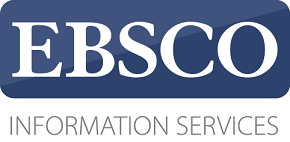Fostering Students’ Writing Ability through Project Based Learning Approach
Abstract
Abstract: This study aims to investigate the improvement of writing ability by employing project based learning strategy. It involved 32 students of tenth grade Design Communication Visual department in SMKN 1 Banyuwangi. The students were asked to write descriptive text by describing an innovative product design. The essay was analysed to measure the students’ improvement in writing ability. The research design of this study is a Classroom Action Research (CAR). The result revealed that the implementation of Project based learning significantly improved the students writing ability of descriptive text and it also proven improving aspects of writing; organization, content, vocabulary, and grammar.
Key Words: project-based learning, writing skill, descriptive text
Abstrak: Penelitian ini bertujuan untuk meneliti peningkatan kemampuan menulis dengan menggunakan strategi project based learning. Penelitian melibatkan 32 siswa kelas sepuluh jurusan Desain Komunikasi Visual di SMKN 1 Banyuwangi. Siswa diminta untuk menulis teks deskriptif dengan mendiskripsikan desain inovatif. Karangan dianalisis untuk mengukur peningkatan kemampuan menulisnya. Desain penelitian ini adalah Penelitian Tindakan Kelas (PTK). Hasil penelitian menunjukkan bahwa pene-rapan project based learning secara signifikan meningkatkan kemampuan menulis teks deskriptif sis-wa dan juga terbukti meningkatkan aspek penulisan; organisasi, konten, kosa kata, dan tata bahasa.
Kata kunci: pembelajaran berbasis proyek, keterampilan menulis, teks deskriptif
Keywords
Full Text:
PDFReferences
Beckett, G. (2002). Teacher and student evaluations of project-based instruction. TESL Canada journal, 52–66.
Bender, W. N. (2012). Project-based learning: Differentiating instruction for the 21st century. Corwin Press.
Chikita, G. P., Padmadewi, N. N., & Suarnajaya, I. W. (2013). The effect of project based learning and students’perceived learning discipline toward the writing competency of the eleventh grade students of SMAN 5 Mataram in the academic year 2012/2013. Jurnal Pendidikan Bahasa Inggris Indonesia, 1.
Dewi, A. (2015). Improving the writing skill of narrative text through project-based learning for grade VIII students of SMPN 11 Magelang in the academic year of 2014/2015 (Unpublished master’s thesis). Yogyakarta State University, Indonesia.
Fragoulis, I., & Tsiplakides, I. (2009). Project-based learning in the teaching of English as a foreign language in Greek primary schools: From theory to practice. English Language Teaching, 2(3), 113–119.
Giri, D. R. (2016). Project-based learning as 21st century teaching approach: A study in Nepalese private schools. US-China Education Review A, 6(8), 487–497.
Harmer, N., & Stokes, A. (2014). The benefits and challenges of project-based learning-A review of the literature. Plymouth: PedRIO.
Hibbard, K. M., & Wagner, E. (2013). Assessing and teaching reading composition and writing, 3-5, Vol. 4. Routledge.
Indayati, W. (2015). Implementing project-based learning using group investigation technique to improve the eighth graders’speaking and writing abilities of SMPN 3 Sumbermanjing Malang (Unpublished master’s thesis). Universitas Negeri Malang, Indonesia.
Kementerian Pendidikan dan Kebudayaan-Direktorat Pembinaan Sekolah Menengah Kejuruan (2017) Bim-bingan teknis implementasi kurikulum 2013 seko-lah menengah kejuruan. Jakarta: Kemendikbud.
Kemmis, S. McTaggart, r.(2005). Participatory action research: Communicative action and the public sphere. N. denzin, & y. Lincoln (eds.), Handbook of qualitative research, 559–604.
Legutke, M., Thomas, H., & Candlin, C. N. (2014). Process and experience in the language classroom. Routledge.
Mahendra, M. W. (2019). Improving learners’ writing recount text achievement through project based learning (Unpublished undergraduate’s thesis). Universitas Negeri Malang, Indonesia.
Markham, T. (2011). Project based learning a bridge just far enough. Teacher librarian, 39(2), 38.
Matthews, A., Spratt, M., & Dangerfield, L. (1985). At the chalkface: practical techniques in language teaching. Hodder Arnold.
Mergendoller, J. R., Markham, T., Ravitz, J., & Larmer, J. (2006). Scaffolding project based learning: tools, tactics and technology to facilitate instruction and management. Buck Institute for Education Novato, California USA.
Nunan, D. (1989). Understanding language classroom. U.K: Prentice Hall.
Pratomo, B. (2014). The use of project based learning to improve the students’ swriting skills at class VIIF of SMP Negeri 7 Magelang in the academic year of 2013/2014 (Unpublished master’s thesis). Yogyakarta State University, Indonesia.
Putra, I. D. G. R. D., Padmadewi, N. N., & Suarnajaya, I. W. (2014). A study on the implementation of project-based learning in teaching writing skill to English education department students of Mahasaraswati University Denpasar in academic year 2013/2014. Jurnal Pendidikan Bahasa Inggris Indonesia, 2(1).
Díaz Ramírez, M. (2014). The impact of project work and the writing process method on writing production. How, 21(2), 31–53.
Sadeghi, H., Biniaz, M., & Soleimani, H. (2016). The Impact of project-based language learning on Iranian EFL learners comparison/contrast paragraph writing skills. International Journal of Asian Social Science, 6(9), 510–524. DOI:10.18488/journal.1/2016.6.9/1.9.510.524.
Stoller, F. (2002). Project work: A means to promote language and content. Methodology in language teaching: An anthology of current practice, 107–119.
Stripling, B., & Macko, F. C. (2000). A guide to project-based learning: Inspiring middle school students to engage in deep and active learning division of teaching and learning office of curriculum, standards, and academic engagement. New York: NYC department of education.
Swandi & Netto-Shek. (2016). Teaching writing at the primary levels. Indonesian Journal of Applied Linguistics, 7(1), 1–10. doi: dx.doi.org/10.17509/ijal.v7i1.6852.
Tessema, K. A. (2005). Stimulating writing through project-based tasks. English Teaching Forum, 43(4), 22–28.
Thitivesa, D., & Essien, A. M. (2013, January). The Use of project to enhance writing skill. In Proceedings of World Academy of Science, Engineering and Technology (No. 78, p. 1071). World Academy of Science, Engineering and Technology (WASET).
Wachyu, M. I., & Rukmini, D. (2015). The effectiveness of project based learning and problem based learning for teaching biography text writing to highly and lowly motivated students. Language Circle: Journal of Language and Literature, 10(1).
Widiati, U. (2003). Problems with peer response of writing-as-a-process approach in an EFL writing classroom. Jurnal Ilmu Pendidikan, 9(3), 188–199.
Widiati, U., & Cahyono, B. Y. (2006). The teaching of EFL writing in the Indonesian context: The state of the art. Jurnal Ilmu Pendidikan, 13(3), 139–150.
Copyright (c) 2019 Jurnal Pendidikan Humaniora

This work is licensed under a Creative Commons Attribution-ShareAlike 4.0 International License.
Jurnal Pendidikan Humaniora Graduate School, Universitas Negeri Malang JPH is licensed under Creative Commons Attribution-ShareAlike 4.0 International License |









